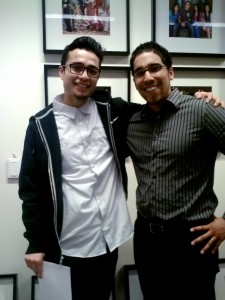After he spent two hours searching his town in Peru for a can of milk to buy for his small children, Cindy Linan’s father decided it was time to move to the United States.

“We didn’t have sufficient food, and it was hard to find a job,” Linan said. “My parents … sacrificed their land, they used to own a store, they sold it all to come to the United States. It wasn’t for their benefit, it was just so we wouldn’t have to go through that … and even maybe face starvation at some point if we stayed there.”
Linan, a freshman at UVU, is one of many students in the Provo/Orem area whose family is not in the United States legally. Being undocumented means that these students don’t have access to opportunities that require a social security number, including military service, jobs, most scholarships and federal financial aid for school.
Linan found this out when she went to apply to colleges.
“That’s when it hit me. I can’t do financial aid, I can’t get in-state tuition, I can’t get a job, I can’t get a car if I don’t have a job,” Linan said. I can’t buy my laptop without income, you know, so I just broke down and started crying, … I just had this huge long list of things I couldn’t do,”
Linan and others like her have grown up believing in the American Dream. As they encounter these roadblocks to fulfilling their dreams, they join together and form local and national communities to fight to become legal. They are called DREAMers.
For the past decade, DREAMers have been pushing for the DREAM Act, a piece of legislation that would allow undocumented immigrants to earn their citizenship through military service or higher education. The bill, originally proposed by Sen. Orrin Hatch, R-Utah, in 2001, was introduced to Congress again in 2010, where it stalled in the Senate.
When Janeth Paredes, then a junior in high school and now a UVU student, saw the DREAM Act fail, it pushed her to advocate more actively for rights of undocumented students and come out of the shadows as an undocumented student herself.
“Politicians talk about immigration, people crossing the borders, numbers, just numbers, and there’s not a face to those stories,” she said. “As undocumented students, that’s what we do. (That’s) our goal with coming out of the shadows, undocumented and unafraid, unapologetic and sharing our stories.”
DREAMers finally won a quasi-victory in 2012 when President Barack Obama enacted Deferred Action for Childhood Arrivals (DACA). DACA allows undocumented immigrants who came here when they were younger than 16 and who have a clean background to apply to receive a social security number and a work permit.




